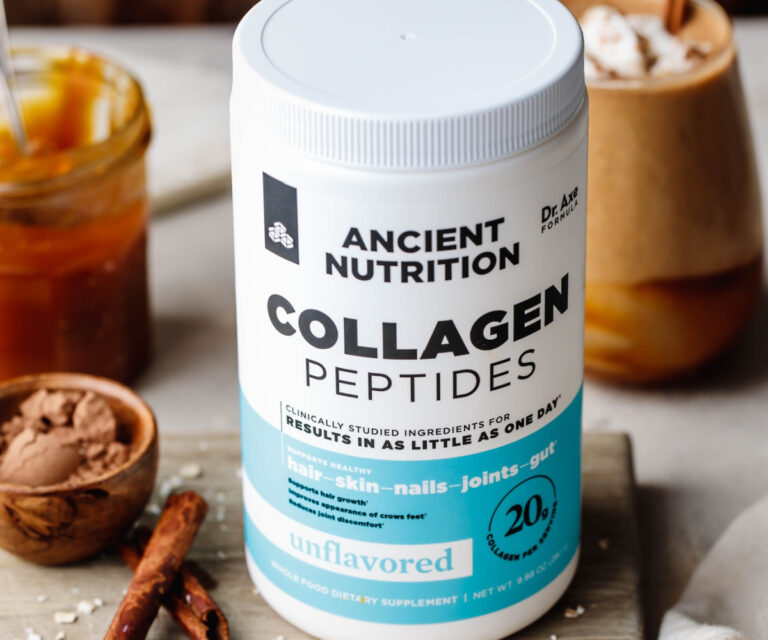Psoriasis is an inflammatory condition affecting millions of Americans. The symptoms of psoriasis can overlap with other skin disorders such as eczema, and skin types, like dry skin. However, psoriasis isn’t just a skin condition—it’s an autoimmune disease. The most common type of psoriasis is plaque psoriasis, which is characterized by a buildup of skin cells that form plaques, or thick, scaly areas on the skin. Although there’s no cure for psoriasis, it’s possible to treat its symptoms through medication, therapies, and lifestyle modifications. A specialist, such as a board-certified dermatologist or rheumatologist, can recommend the appropriate treatment plan for you. In addition to what your provider recommends, home remedies for psoriasis may help soothe inflammation and decrease flare-ups. 15 natural remedies for psoriasis The exact cause of psoriasis is unknown, but genetic and environmental factors may be involved. As an immune-mediated condition, an overactive immune system may also play a role. It leads the body to believe its own tissues are foreign invaders, causing the immune system to attack. “The immune system speeds up the production of skin cells, causing them to pile up at the surface of the skin,” says Brooke Jeffy, MD, a board-certified dermatologist in Scottsdale, Arizona. This forms skin plaques, which are raised patches of flaking skin that feel scaly and may cause pain or itchiness. They often appear pink or red in lighter skin tones and brown, purple, or gray in darker skin tones. Since it has an inflammatory component, many psoriasis treatments and remedies have anti-inflammatory properties. This can include topical skin care products, supplements, dietary changes, and more. Home remedies can’t make psoriasis go away, but they may provide some relief and make living with psoriasis a little easier. 1. Moisturizer Moisturizing is one of the best natural treatments for psoriasis. In fact, the American Academy of Dermatology says that regardless of whether you have mild or severe psoriasis, moisturizing benefits anyone with the disease. The main purpose of moisturizing is to reduce dryness, which people with psoriasis are prone to. “Hydration of the skin has been shown to improve the skin of psoriasis patients and their quality of life,” Dr. Jeffy says. “Dry skin adds to the symptoms of itch and inflammation that come with psoriasis.” Certain moisturizer ingredients also have further benefits—some soften scaly patches while others reduce flaking, for example. “Moisturizing regularly with an occlusive lotion or cream (that doesn’t further irritate the skin) and wrapping the affected area with plastic wrap or fabric can also help minimize future outbreaks and provide temporary relief,” says Melanie Palm, MD, a board-certified dermatologist and cosmetic surgeon at Art of Skin MD in Solana Beach, California. She recommends emollient formulas to help soften and soothe the skin. When looking for a lotion, cream, or moisturizer for psoriasis, look for the following ingredients: Antioxidants Ceramides Lactic acid Olive oil Salicylic acid Urea 2. Petroleum jelly If you follow skincare trends, you’ve likely heard of skin slugging. This trend could be beneficial for those with psoriasis, says Rhonda Klein, MD, FAAD, a board-certified dermatologist and co-founder of Modern Dermatology in Westport, Connecticut. “Slugging is the process of applying an occlusive [ingredient] overtop of your skincare to seal the benefits in,” Dr. Klein explains. “After applying your moisturizer, cover the affected areas with a thin layer of petroleum jelly to create a healing barrier between the skin and the outside world.” Plus, petroleum jelly is available over the counter and is inexpensive. 3. Warm baths Taking warm baths is soothing for a variety of reasons, but adding the right ingredients to your bathwater may yield a concoction that soothes psoriasis. Dr. Klein recommends warm baths once or twice a week but with some stipulations. “Use lukewarm water and limit your soak to 15 minutes,” Dr. Klein says. “Add Epsom salts, which can help to soften scales and soothe inflammation.” Avoid hot baths as this can cause worsening of dry skin. Another ingredient to add to warm baths is one you likely already have in your house: baking soda. In a small study, medicated baths containing baking soda were found to reduce itchiness and irritation in people with psoriasis. 4. Humidifier Psoriasis is often accompanied by dryness and even dehydrated skin. Because the skin barrier function is compromised, those with psoriasis may have increased transepidermal water loss, which occurs when water evaporates through the epidermis. To counteract this, Dr. Klein recommends using a humidifier in any room you spend a lot of time in, such as your bedroom or office. “Adding moisture to the air prevents water loss and can help to prevent dry skin,” Dr. Klein says. 5. Dandruff shampoo Dandruff shampoos are an unexpected treatment option for psoriasis, but some keratolytic ingredients commonly found in them may provide relief. Look for formulas that contain salicylic acid, notes Dr. Jeffy. Salicylic acid is a common active ingredient found in cosmetics, and whether your flakes are caused by dandruff or scalp psoriasis, dandruff shampoo treated with salicylic acid may help you get some relief from itching and scaly skin. “Salicylic acid helps to exfoliate and remove some of the excessive cells that pile up, leading to psoriatic plaques,” Dr. Jeffy explains. “It also has anti-inflammatory properties that can help with associated redness and itch.” 6. Fish oil supplements Certain nutrients found in food and supplements may be beneficial for people with psoriasis due to their anti-inflammatory properties. The omega-3 fatty acids found in fish oil supplements, for example, may help reduce inflammation, Dr. Klein says. Fish oil may also help promote hydrated skin in those with psoriasis, adds Dr. Jeffy. However, the research on this is inconsistent. Some researchers have found that fish oil yields positive effects on psoriasis, while others came to a different conclusion. More research is ultimately needed on the specific link between fish oil and psoriasis, but we do know that omega-3 fatty acids are essential nutrients that have many benefits to your health. 7. Dietary changes There isn’t a specific psoriasis diet, but what you eat can soothe or worsen your symptoms. The best foods for psoriasis are those that reduce inflammation, and the worst foods for psoriasis are those that increase inflammation. Alcohol, dairy, and gluten are in the group of foods to limit if you have psoriasis. “These are common triggers of system inflammation in the body,” notes Dr. Klein. Other inflammatory foods to avoid include sugar, refined carbohydrates, and foods that contain saturated and trans fats. So, what should you eat? There are several anti-inflammatory diets recommended for those with psoriasis, including gluten-free, low-calorie, heart-healthy, and Mediterranean-style diets. Research supports a balanced diet rich in fruits, vegetables, fatty fish, whole grains, legumes, nuts, and vegetables, though dietary modifications may vary from person to person. 8. Colloidal oatmeal The use of colloidal oatmeal creams and oatmeal baths are common home remedies for psoriasis and other skin conditions. While much of the research on the benefits of colloidal oatmeal has to do with eczema, clinical trials confirm the antioxidant and anti-inflammatory properties of oats in dry, irritated skin. It soothes discomfort, says Dr. Klein, who recommends infusing bathwater with oats. To double up on its benefits, you can also apply topical creams, ointments, and lotions containing colloidal oatmeal. 9. Aloe vera Commonly touted as a remedy for sunburns, aloe vera may be a promising option to soothe the irritation associated with psoriasis. It’s been shown to reduce redness and scaling as well as the severity of psoriasis. The National Psoriasis Foundation recommends looking for topical skin care products with 0.5% aloe vera and applying them up to three times daily. 10. Capsaicin The compound in chili peppers responsible for making them spicy—capsaicin—could make for an effective psoriasis treatment. Topical capsaicin creams are available OTC for people with nerve pain, but they may also help relieve pain associated with psoriasis, notes the National Psoriasis Foundation. It may also reduce inflammation and scaling, though some have reported side effects like a burning sensation when applied topically. Other research indicates that capsaicin could decrease itching in people with psoriasis. 11. Tea tree oil Tea tree oil has been shown to possess antibacterial, antimicrobial, and anti-inflammatory properties, so it has many applications in dermatology. Where psoriasis is concerned, tea tree oil could be helpful. It reduces skin inflammation and may increase the anti-psoriatic effects of curcumin, a compound in turmeric. When using tea tree oil—or any essential oil, for that matter—be sure to dilute it. Pure tea tree oil could cause irritation. Additionally, pregnant women should check with their healthcare provider before using tea tree oil during pregnancy. 12. Turmeric Turmeric isn’t just a spice reserved for Indian-style cooking—it contains a compound called curcumin, which has been used for its medicinal properties for centuries. The research on oral and topical curcumin for psoriasis is promising. As a known anti-inflammatory agent, it’s no surprise that turmeric could reduce inflammation in those with psoriasis. In some studies, topical turmeric has been shown to significantly improve scaly lesions. 13. Stress reduction Stress is one of the most common causes of psoriasis flare-ups, research says. Stress can trigger psoriasis, and a psoriasis flare can trigger stress, creating a negative cycle you don’t want to be in. Fortunately, stress reduction through various methods has been shown to improve it, Dr. Jeffy says. Stress management and caring for your mental health can therefore be part of an overarching psoriasis treatment plan. Stress relief can look different for everyone, but meditation and practicing mindfulness can be beneficial for preventing stress-related psoriasis flare-ups. 14. Weight management The link between psoriasis and obesity is strong. Obesity can increase your risk of developing psoriasis, and in those with existing psoriasis, obesity can amplify it. This could be due to the increased inflammation associated with obesity. One of the treatment options for psoriasis is weight reduction, Dr. Jeffy says. A trial involving 303 overweight or obese patients with chronic plaque psoriasis found that diet and exercise led to reduced psoriasis severity. The American Academy of Dermatology also recommends weight management for people with psoriasis, noting that even a small amount of weight loss can lead to fewer psoriasis plaques on the skin. 15. Oregon grape Oregon grape (Mahonia aquifolium) is an herb used in traditional Chinese medicine. It’s often used to treat stomach issues, but it’s also thought to help improve psoriasis when applied topically. Oregon grape creams have been shown to significantly improve psoriasis as well as eczema. Specifically, it works by reducing inflammation in psoriasis lesions. 5 psoriasis remedies to avoid Although there are many treatment options for psoriasis—both OTC and prescription—there are some home remedies that can be ineffective and unsafe. Here are a few to avoid if you have psoriasis. 1. Stopping your medication Psoriasis is an autoimmune disease and inflammatory skin disorder. While there are many over-the-counter (OTC) and at-home treatments that could help, psoriasis isn’t something you should try to treat on your own. If you take psoriasis medication, you shouldn’t stop your medication cold turkey in favor of natural remedies. Talk to your provider about using natural remedies in conjunction with your treatment plan instead of in place of it. Additionally, Dr. Jeffy notes that stopping your medication to try home treatments could make matters worse. “This may lead to recurrence of your typical psoriasis or a flare that is worse than your psoriasis tends to be,” she says. Even if natural treatments appear to improve skin inflammation, it’s essential to see a healthcare provider to treat the underlying symptoms of psoriasis. 2. Sunbathing Spending time in the sun is rumored to help psoriasis, but sun exposure on unprotected skin—that is, skin without sunscreen—can have other negative effects. “Ultraviolet radiation from sun exposure can cause skin cancer and age-related changes to the skin,” Dr. Jeffy says. While sunlight provides both vitamin D and UVB rays that can offer some relief from psoriasis, Dr. Jeffy doesn’t recommend it. Instead, she recommends phototherapy treatments, which expose skin to UVB rays in a controlled environment. 3. Tanning beds Tanning beds are a potent source of UVB rays, which are known for providing some psoriasis relief. However, the benefits are outweighed by the risk of skin cancer, says Dr. Klein. She strongly recommends against using tanning beds as a remedy for psoriasis. “It’s a dangerous means of psoriasis treatment,” adds Dr. Palm. “The wide variety of new topical treatments, biologic therapies, and other treatment modalities including lifestyle modification are much safer and effective means of controlling psoriasis.” 4. Applying undiluted essential oils to the skin Some essential oils can be helpful for psoriasis, but using them incorrectly can cause irritation. To use essential oils on the skin, they must first be diluted with a carrier oil. Even using diluted essential oils can cause problems because they can cause allergic reactions, dermatologists say. “There is significant risk of developing contact dermatitis from applying these potential allergens on already inflamed plaques of psoriasis,” Dr. Jeffy warns. 5. Apple cider vinegar Apple cider vinegar (aka fermented apple juice) has been used for centuries for its wound healing and antibacterial properties. However, much of the evidence that it improves psoriasis is anecdotal. There are studies on the effects of apple cider vinegar on other inflammatory skin conditions, but no such research exists for psoriasis. In fact, the National Library of Medicine suggests that apple cider vinegar is unsafe to use on the skin because it can cause chemical burns. Apple cider vinegar soaks or baths could be helpful, but there isn’t strong evidence of this. How to treat psoriasis when natural remedies don’t work There’s no cure for psoriasis, but there are an abundance of treatment options. The right treatment for you depends on the severity of your psoriasis. Treatments you’ve tried in the past can also influence which interventions your healthcare provider recommends trying next. Topical therapy: There are a variety of topical creams, gels, ointments, and more available for psoriasis. OTC options include coal tar, retinoids, hydrocortisone, and others. Stronger steroid creams, such as triamcinolone or clobetasol, as well as retinoids like Tazorac (tazarotene), are available with prescription. Light therapy: Under medical supervision, your skin is exposed to UV light, which penetrates the skin and slows the growth of affected skin cells. Prescription oral medication: In severe cases, your provider may prescribe oral medication. Otezla (apremilast) is commonly used to treat plaque psoriasis and psoriatic arthritis. Methotrexate and cyclosporine are immunosuppressants reserved for recalcitrant cases of severe, disabling psoriasis. Another option to ask your provider about is acitretin, an oral retinoid used to treat severe psoriasis. Biologics: Biologics, such as Skyrizi, are injectable drugs that target the body’s immune system and inhibit specific functions of it, Dr. Klein explains. They’re usually reserved for moderate-to-severe cases of psoriasis after exhausting other treatments. When to see a doctor for psoriasis symptoms Psoriasis treatments that can be done at home are often focused on improving inflammation of the skin, but there’s often inflammation you can’t see. Psoriasis-related inflammation can affect the organs, increasing the risk of other health conditions and diseases, such as heart disease and diabetes, per the National Psoriasis Foundation. This is why it’s important to see a healthcare provider not only for the symptoms of psoriasis you can see and feel (i.e., plaques, rashes, etc.) but also for underlying symptoms you may not be able to see. Key takeaways There is no cure for psoriasis, but natural remedies can provide relief, especially when used in combination with medication. Examples of at-home treatments include aloe vera, colloidal oatmeal, fish oil supplements, and dandruff shampoo. You should avoid certain remedies, including sunbathing, tanning beds, apple cider vinegar, and undiluted essential oils. Sources When psoriasis impacts the mind, National Psoriasis Foundation (2021) Psoriatic disease and the immune system, National Psoriasis Foundation (2023) What psoriasis treatments are available without a prescription? American Academy of Dermatology Old fashioned sodium bicarbonate baths for the treatment of psoriasis in the era of futuristic biologics: An old ally to be rescued, The Journal of Dermatological Treatment (2005) Nutrition and psoriasis, International Journal of Molecular Sciences (2020) Psoriasis diet: Foods to eat and avoid if you have psoriasis, John Hopkins Medicine Nutritional therapy in persons suffering from psoriasis, Nutrients (2022) Anti-inflammatory activities of colloidal oatmeal (Avena sativa) contribute to the effectiveness of oats in treatment of itch associated with dry, irritated skin, Journal of Drugs in Dermatology (2015) Review of natural compounds for potential psoriasis treatment, Inflammopharmacology (2023) Integrative approaches to care, National Psoriasis Foundation (2020) Apple cider vinegar, National Library of Medicine (2023) Tea tree oil as a novel antipsoriasis weapon, Skin Pharmacology and Physiology (2012) Enhancement of curcumin’s anti-psoriatic efficacy via formulation into tea tree oil-based emulgel, Gels (2023) Use of curcumin in psoriasis, Open Access Macedonian Journal of Medical Sciences (2018) Topical turmeric microemulgel in the management of plaque psoriasis; A clinical evaluation, Iranian Journal of Pharmaceutical Research (2015) The pathophysiological mechanisms and the quest for biomarkers in psoriasis, a stress-related skin disease, Disease Markers (2018) Mindfulness and meditation for psoriasis: A systematic review, Dermatology and Therapy (2022) Exploring the links between obesity and psoriasis: A comprehensive review, International Journal of Molecular Sciences (2022) Diet and physical exercise in psoriasis: A randomized controlled trial, British Journal of Dermatology (2014) What should I eat if I have psoriasis? American Academy of Dermatology (2020) Review of the efficacy and safety of topical mahonia aquifolium for the treatment of psoriasis and atopic dermatitis, The Journal of Clinical and Aesthetic Dermatology (2018) Apoptotic or antiproliferative activity of natural products against keratinocytes for the treatment of psoriasis, International Journal of Molecular Sciences (2019) Psoriasis treatment: Phototherapy, American Academy of Dermatology Genetics of psoriasis: a basis for precision medicine, Precision Clinical Medicine (2019)
This content was originally published here.



















